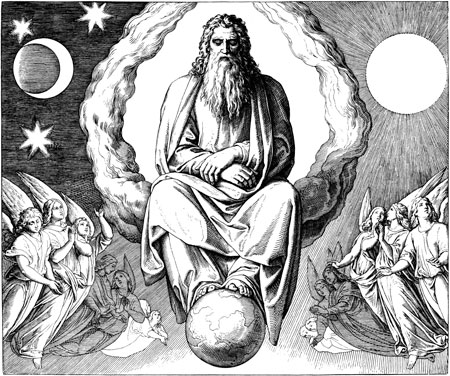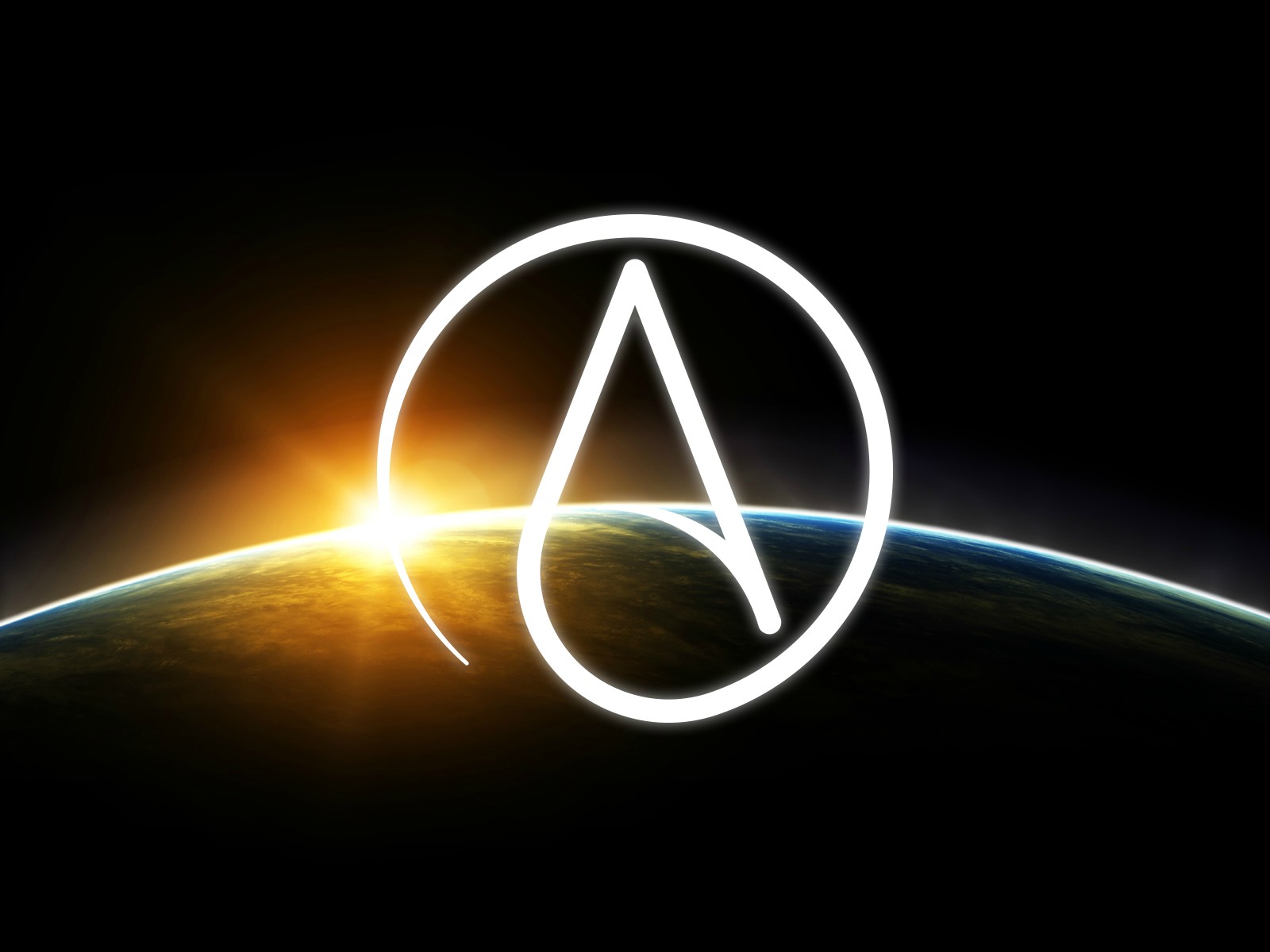Last Updated on 2022-07-08 by Joop Beris
Apologists love to invent reasons why atheism isn’t a viable position to hold or why atheism fails in some way or another. Most of those reasons are actually misrepresentations of what atheism means. A prime example of this kind of writing is the article “Why atheism fails” on Christian Valour, some quotes of that article are reproduced here for your convenience. Let’s have a look at it, shall we?
What is atheism?
The author of said article starts of okay, referring to American Atheists for a definition of atheism. As they explain there:
Atheism is one thing: A lack of belief in gods.
https://www.atheists.org/activism/resources/about-atheism/
I’ve explained that several times here on the blog as well, for instance in this article where I examine if atheism is a religion. Surprisingly, there are people who claim that atheism is just another religion because it requires belief. Credit where credit is due, the author of “Why atheism fails” doesn’t make any such outlandish claims.
Still, there are a certain number of claims in the article where the author assumes things about atheists that fall well outside the definition of atheism given above. These are, among others:
- Virtually all atheists live life as if God does not exist and harbor a characteristic antagonism towards religious belief.
- For the most part atheism rejects any reference to the supernatural, including ghosts and the paranormal, inter-dimensional spirituality, the human soul or any kind of afterlife (including reincarnation).
- To many atheists, science has all the tools to explain virtually all of our existence, because science is the study of the natural world, and the natural world is all there is.
While there is some truth to these claims, they are gross exaggerations. Remember, we are talking about atheism and atheists in general, so this includes all people who proclaim a lack of belief in god or gods. This includes for instance many Buddhists who do not believe in a deity but most definitely value their religious beliefs. Most atheists are not antagonistic towards religious belief, they are indifferent towards it. Or at least they would be, if the religious didn’t keep pushing their belief system onto everyone and everything.

Atheism most certainly does not reject any reference to the supernatural, be they ghosts, spirituality or reincarnation. Atheism simply means “a lack of belief in gods”, which leaves a wide variety of spiritual or supernatural options open to an atheist. Even a very outspoken atheist like Sam Harris is open to evidence of the paranormal, including reincarnation.
Most atheists who are scientifically literate, will freely acknowledge the limitations of science, just like proper scientists. Science may be the best tool we have to understand the natural world, it is by no means a perfect tool. Most atheists acknowledge that science doesn’t have all the answers and may never have them. While “we don’t know” may not be a satisfactory answer, it’s often the only answer we have.
Explaining the world
The author explains to his readers how he thinks atheists explain the world. Here’s were things start to go really awry. The very first sentence of this part is this:
Atheism is a worldview really, just like Christianity is a worldview.
https://www.christianvalour.com/why-atheism-fails/
The word “worldview” is an ill-defined concept and the author doesn’t offer a clear definition of it in the article himself but he quotes a workable definition from a Ravi Zacharias:
A worldview basically offers answers to four necessary questions: origin, meaning, morality, and destiny [purpose].
https://www.rzim.org/read/just-thinking-magazine/think-again-deep-questions
If we accept this definition of the word “worldview” it is clear that atheism doesn’t meet that definition and so isn’t a worldview. Atheism only says something about a very narrow, very specific topic. As per the definition the author quotes: “Atheism is one thing: A lack of belief in gods”. How could a lack of belief in gods possibly answer any questions about origin, meaning, morality and purpose? This strange notion reminds me of an article by Dr. Patrick O’Connor, where he accuses atheism of not having answers to poverty or gender inequality. Atheism has nothing to say about any of those topics so it is not fair to say that atheism fails.

Saying that atheism fails as a worldview because it doesn’t answer questions about origin or meaning is like going to a vegetarian restaurant and complaining about the lack of meat on the menu. It’s simply not a fair thing to do and the author should have realized this by looking at the definitions he uses for this article. However, he insists that:
A belief that God doesn’t exist (or is not the most likely explanation), needs to be able to explain (or at least have some idea) how to answer questions like what mechanisms gave rise to the universe, biological life, human consciousness or the laws of nature and logic? Do our lives have meaning? Is there such a thing as good and evil?
Note how the definition of atheism suddenly changes from “a lack of belief in gods” to “a belief that god doesn’t exist”. These are not the same thing at all. While the first is not a knowledge claim, the new definition used here most definitely is.
The author says that atheism needs to be able to explain how the universe got here but this is, by the author’s own definition, far beyond the realm of atheism. It’s entirely possible to both lack belief in gods while not knowing how the universe began, if indeed it did begin. Just as vegetarian restaurants don’t serve meat, atheism doesn’t answer questions about the origin of life. It’s simply not equipped to do so.
Gaps, gaps everywhere
Our author then outlines exactly why atheism fails, according to him. He lists the following reasons for this:
- Atheism doesn’t answer the questions about the origin of the universe, life, consciousness and natural laws.
- Atheism doesn’t answer the questions about meaning and purpose for our lives.
- Atheism doesn’t answer the question where morality comes from.
Suddenly, we find ourselves in very familiar territory. Forget for a moment that atheism can’t provide answers to all these questions, as we have seen above. Basically what the author is doing, is making a typical apologist argument: “Science/atheism can’t explain x, therefore God”. It’s the age-old “God of the gaps” argument.

Origin of the universe
The author says that atheism has no idea how the universe got here so atheists can’t dismiss God as an origin because it can’t give a reasonable alternative:
The atheists rejection of God as creator, is unjustly dismissive, given their lack of an alternative.
Never mind for a moment that the job of explaining the origin of the universe is that of cosmologists, not atheists. Even without having any idea how the universe came into existence, it’s completely justified to dismiss God as creator. Here’s why:
- The concept of God doesn’t have any explanatory power. Even if we admit that a god must have done it, we have not answered the question of how the universe got here. We must still explain how this god did it.
- If we admit that a god created the universe, we must then explain the origin and nature of this god. Where did god come from, where was he before he created the universe, what are the properties of this god, etc? If this god exists separate from the universe, we must explain how he can interact with it. If this god is assumed to be eternal and without an origin, why can’t the universe be eternal? Then we can forget about this god entirely. Instead of answers, we have gotten a whole new set of questions of another magnitude entirely.
- Which god created the universe? Of course Christians would like it to be their god, but why not Zeus, Ra, Marduk or Odin? We have no way of establishing which creation story is true and which isn’t.
- The approach shifts the burden of proof to the person saying “I don’t know”, while it should be with the person making the positive claim “God created the universe”. It’s not up to atheism to disprove or explain away a god, it’s on the theist to make god a viable explanation.
- Introducing a god as explanation for the origin of the universe, violates the principle of Occam’s razor, which says that all things being equal, the simplest explanation is most likely the correct one. The introduction of a god massively complicates matters in this case.

Origin of life
Next, atheism is accused of not being able to explain the origin of life:
Atheism (and science) have no idea, how life arose from non-living chemicals.
Wait, science? I thought you said that atheism fails to explain these things? It’s indeed science, the science of abiogenesis that tries to answer the question of how life began on Earth. Never mind that for now, because let’s see what out author says. Science has no idea how life arose from non-living chemicals? The author links to an article dismissing the famous Miller-Urey experiment but this experiment was done in the early 1950’s and there have been many developments and discoveries in the past 60 ~ 70 years. It’s not that science has no idea how life arose, there are actually too many hypotheses! I must however admit, that there’s no definitive answer to how non-life gave rise to life.
This does not mean that suddenly “God did it” becomes a viable or even plausible answer to the question of how life originated. We can raise the same objections as with the origin of the universe:
- We still need to explain how God did it.
- We must explain where God comes from.
- We must determine which of the many possible gods is responsible.
- Shifts the burden of proof.
- Violates Occam’s razor.
Origin of consciousness
We move on to the origin of consciousness next as an other point why atheism fails. The author states:
Most importantly, no one has any naturalistic, atheistic explanation for where consciousness came from. How did it originate? How did it evolve? What caused it?
This is all true, we do not have a ready explanation or answer to all of these questions. In fact, I’ll go one further and say that we do not even have a clear definition of consciousness yet, never mind an explanation of it. We struggle to define what consciousness means because it is so broad.
Can religion, in this case Christianity, do better? The author doesn’t say but I speculate that the answer would refer to a god-given soul. The concept of a soul is even more poorly defined than the concept of consciousness, so we have no definition of what it is so we can’t begin to establish that there is such a thing.
The earlier objections are also valid here:
- We still need to explain how God made consciousness.
- We must explain what a soul is and how it provides us with consciousness.
- We must determine which god has done the deed.
- Shifts the burden of proof
- Violates Occam’s razor
Origin of Natural Laws
The argument from the author here is that if our universe arose purely from natural processes, we shouldn’t expect to find any natural laws in them at all. Instead, we have laws of nature, mathematics and logic.
Natural laws are properties of the physical universe that it conforms to. It is these laws which make it orderly, and allow us to study it. It is because of the immutability of these laws that allow science to make reliable predictions.
Well, not exactly. The universe doesn’t conform to natural laws, rather natural laws describe how the universe behaves. This is an important distinction which apologists often deliberately or accidentally miss.
There are two kinds of laws: we have prescriptive laws and descriptive laws. An example of prescriptive law would be something like a traffic law: You must not drive faster than X. An example of a descriptive law would be the Law of Gravity. The Law of Gravity doesn’t tell the planets how to move, it describes how they move. Apples already fell from trees long before Isaac Newton worked out the hows and whys of it.

The laws of nature are descriptive laws, not prescriptive laws. They do no say that it is forbidden for a proton to move faster than the speed of light, they simply say that protons do not move faster than the speed of light. Nobody needs to explain where these laws come from because we have worked them out for ourselves, through careful observation, study and brilliance.
If the question is “would we expect to find order in a universe that was completely derived from some natural process”, as the author asks, then I’m afraid he has things backwards. If the universe wasn’t at least somewhat orderly, we would not be here to ponder the wonderfully chaotic nature of our universe.
Besides, is there a good reason to think that a universe derived from natural processes could not be orderly? We see natural processes produce a myriad of orderly things around us on a daily basis, like the water cycle, the changes of the seasons or the motion of the planets. These are natural processes that we understand and can predict with relative accuracy. Is it so hard to accept then that natural processes could produce a fairly orderly universe?
Meaning and purpose
Theists often say that if there is no god out there, then there is ultimately no point, no meaning or purpose to our existence. The rationale behind that is apparently that whatever we decide to do with our lives is not for eternity so it is without purpose and meaning. Our author apparently shares this sentiment:
What I am saying is this, if it’s true that God does not exist, then it’s simply true that meaning and purpose do not exist. Whatever meaning and purpose we give to our lives is an illusion. Whatever meaning and purpose we give to our lives is completely temporary and counts for nothing in the (very) long run. The universe evolved, then life evolved, then we evolved. Eventually we will all die, humanity will go extinct, all of our knowledge, technology, and experiences will cease to exist as if they never did. Eventually all of life will fade away, and the universe will fade into oblivion.
Well first of all, I am forced to observe that even if there is a Christian God, whatever we choose as our purpose here on Earth is equally temporary. After all, we all die at some point and leave our Earthly existence behind us.
Our author continues:
If all we are doing is surviving, and that’s about all that we should be doing, then I see no real survival advantage in evolving the intellectual capacity to question why we should be trying to survive at all.
It appears our author hasn’t thought this through properly. Our ability to assign a meaning and purpose to our own life, gives us an incentive to stay alive. This, paired with our intelligence, has allowed us to overcome obstacles insurmountable to other species. It allows us to imagine a better future for ourselves and our fellow humans and to strive for that future. Taking into account that the number of humans has swelled from some thousands of individuals on the plains of Africa to more than 7 billion individuals spread all across the globe at this point, it doesn’t appear to be an evolutionary disadvantage to ask ourselves these questions.
By contrast, if we seem to really thrive as humans when our lives have purpose and meaning, it’s highly likely that this is because our lives do actually have meaning, and a purpose. This is really only possible if someone, or something gave it to us. Really the best explanation for meaning and purpose is that we were purposefully created by an omniscient God.
This doesn’t follow. If we seem to thrive as humans when our lives have purpose and meaning, there’s nothing to suggest that we can’t choose that purpose and meaning ourselves. It doesn’t need to be given by someone else and there is certainly no reason to jump to the unsupported conclusion that we were purposefully created by an omniscient God.
However, attempting to give your life any meaning and purpose, even some kind of tailor made purpose is to acknowledge that human beings have a need to do so, a need which atheists are at a loss to explain or justify.
It seems to me that this is not the most logical question to ask here. instead, there’s a good question for the theist: If a god allegedly created us to have meaning and purpose, why do people sometimes search their whole life to find meaning and purpose? Why isn’t our meaning and purpose clear from the start? Why is the meaning and purpose people find so vastly different in many cases? The atheist has no trouble explaining this but from a theistic perspective, this makes less sense.
Morality
Fortunately, our author doesn’t make the claim that atheists can’t be moral people, as theists sometimes claim. He acknowledges that it is possible to be good (or at least agreeable) without belief in the Christian God because according to him, even atheists are aware of a universal moral law or standard that has been given by God.

It is a very fortunate fact that the vast majority of human beings, atheist or otherwise, have a deeply rooted belief in the existence of ‘good’ and ‘evil’. So much so that the atheist will very often recourse to some universal moral principle, even if they don’t really believe such a thing exists.
There are several objections we can raise here.
For one, we can question if there really are objective or absolute moral values. I have explored that in an earlier post. Our moral standards have varied and still vary significantly both in time and in geography.
Secondly, even if we accept the premise that there is a universal moral standard, there is no way to know which of the thousands of gods that humanity has believed in at some point is responsible for this universal moral standard or even if it was a god at all. Of course Christians would like to believe it was their God but there’s no way to know this.
Thirdly, as Plato famously explored in his Euthyphro: “Is the pious (good) loved by the gods because it is pious, or is it pious because it is loved by the gods?” If the first case, then good exists separate from god and you don’t need god to be good or if the second case, what is good is nothing but divine whim.
Fourthly, there is evidence of moral behavior not just in humans but in animals as well. Are we to understand that these animals have gotten their moral standard from a god as well or did it evolve with them? If it evolved with them, why not for us humans?
While we may not fully understand how morality got here, we actually have some pretty good theories, like this one or this one. However, just as with the origin or life, we are looking back across millions of years of history separating us from our ancestors, with only fragments to go on. We may never answer this question completely.
Basically what the author is doing, is making an argument from incredulity when he asks “But if God doesn’t exist, where does this moral standard come from?” He can’t believe or understand how it could have evolved with us so there must be a god who gave it to us. As I have tried to explain, there really is no good reason to believe that. It’s also a “god of the gaps” argument, saying that science hasn’t explained this, therefore god did it.
Conclusion
There is just so much wrong with “Why atheism fails” that it’s hard to begin summarizing where it goes wrong. Let’s begin with the title. If you dub an article “why atheism fails”, people will expect criticism of atheism or atheists. Instead, the author goes on about fundamental questions that science hasn’t (completely) answered. Atheism and science are not the same, which even the author seems to understand because he uses the definition of atheism provided by American Atheists. The article should be entitled “why science fails”.
The remainder of the article is pretty much a collection of “god of the gaps” arguments and arguments from personal incredulity. Atheism (read: science) doesn’t explain x, so we can’t rule out that God is responsible. I think I have shown pretty conclusively that we can and should rule out God as an explanation. Introducing God as the answer to these questions doesn’t really answer them. We may as well say that Gandalf did it. In addition the introduction of a god makes matters more complex, not simpler, which is hardly progress. In fact, even if the whole body of scientific knowledge would vanish tomorrow, the Christian God would still not be a viable explanation.
It’s not atheism that fails, it’s the article “Why atheism fails” which fails.

